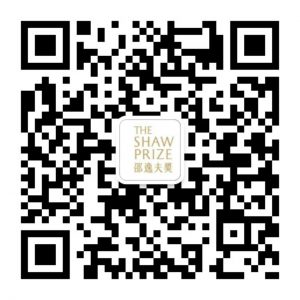for his groundbreaking contribution to cosmology. He laid the foundations for almost all modern investigations in cosmology, both theoretical and observational, transforming a highly speculative field into a precision science.
The Shaw Prize in Astronomy for 2004 is being awarded to P James E Peebles for a lifetime of groundbreaking contributions to cosmology and astrophysics. Between 1963 and 1985 he laid the foundations for almost all modern investigations in the field, theoretical and observational. Independently of some earlier pioneering work, Peebles realized that the observed abundance of light element isotopes, particularly hydrogen, deuterium, and helium-4, required a hot big bang, which would result today in a directly observable cosmic microwave background. A Princeton experiment designed to detect this radiation was barely beaten to the discovery by the work of a Bell Laboratories team. The resounding success of this prediction emboldened particle physicists and cosmologists to speculate on even earlier epochs in the history of the universe, culminating in exciting and suggestive new ideas concerning the nature of the creation event itself.
Peebles also made the first accurate calculation of the crucial transition of the universe from an ionized to a neutral state, and he introduced the formalism for computing the structure imprinted on the cosmic microwave background at recombination. He popularized the notion of massive dark-matter haloes surrounding spiral galaxies, and he was the first to make detailed and elaborate predictions for the large-scale clustering in the cosmos based on the hypothesis that this dark matter consists of elementary particles with relatively low random velocities that interact only weakly with ordinary matter and not at all with light except through gravitation. The name “cold dark matter” derives from these attributed properties. Many of his seminal ideas have been confirmed, decades after they were first proposed, by observations of the high-redshift universe, in particular by the recent measurements of the angular power-spectrum and polarization of the fluctuations of the cosmic microwave background. His two books on physical cosmology and the large-scale structure of the universe defined to a large extent the language and, except for the concept of inflation, the scientific agenda of almost all of the work in the field today. His leadership and vision have been critical for turning cosmology from a loosely constrained study in pure theory into the high-accuracy science that it has become at the beginning of the twenty-first century.
P James E Peebles was born in 1935 in Canada. He received his Bachelor of Science degree from the University of Manitoba in 1958. He then went to Princeton University as a graduate student in physics, and he has been there ever since. He is currently Albert Einstein Professor of Science Emeritus.
